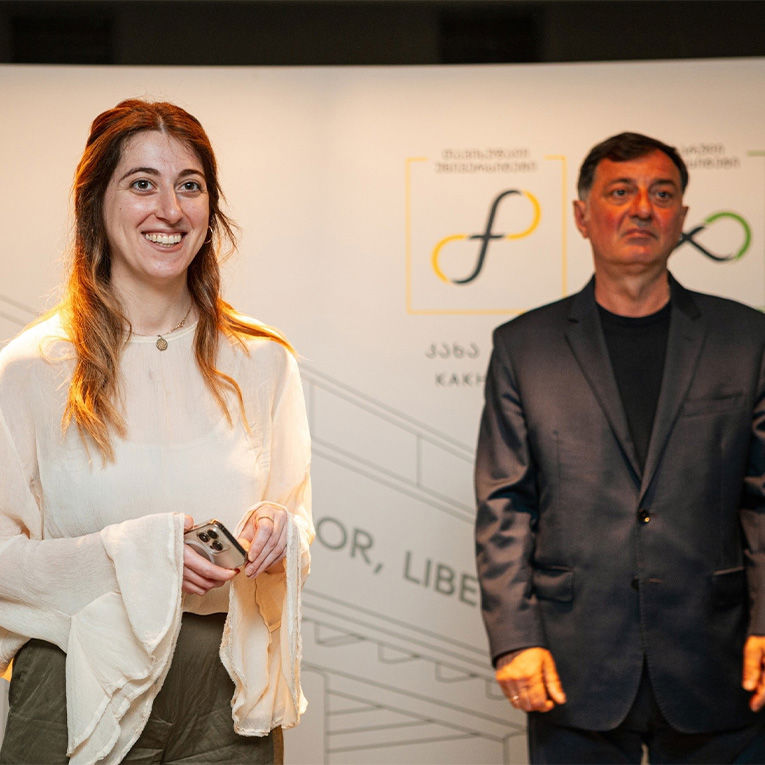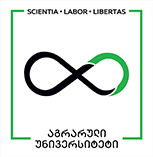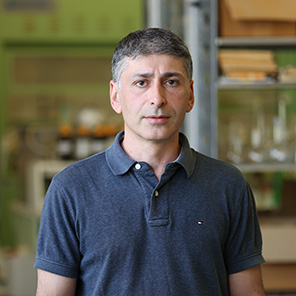School of Natural Sciences and Biotechnology
Bachelor’s Program in Biology Description
The objective of the Agricultural University of Georgia Bachelor's Program in Biology is to prepare graduates with the knowledge and professional skills that meet modern requirements. Students will gain an understanding of both traditional and emerging branches of biological science, become familiar with contemporary biological research methods, technical-experimental approaches, and their applications. Additionally, students will learn the basics of applied fields such as biotechnology and biomedicine and understand their purposes.
The development of students' practical skills is of particular importance in the Bachelor's Program in Biology. This is achieved in stages, allowing students to participate in modern, international-level research throughout their undergraduate education.
The theoretical part of the program encompasses a broad range of traditional biology fields, from molecular biology to behavioral biology, as well as emerging disciplines such as genomics, bioinformatics and others.
This strategic structure, which integrates extensive theoretical education with intensive experimental training, enables graduates to seamlessly engage in scientific research and achieve their career goals, both locally and at leading research institutes and universities in Europe and America.
Upon completing the four-year program, graduates not only possess fundamental theoretical knowledge but have also acquired essential specific skills, such as the ability to work with modern equipment, conduct research, apply analytical thinking, and solve specific problems.
The faculty comprises highly qualified professionals, including professors with extensive experience from European universities and research institutes, whose research is regularly published in prominent European and American journals. Many professors are actively involved in significant international research projects within the scientific institutes of the Agricultural University of Georgia, providing students with opportunities to participate in scientific research from the undergraduate level if they choose to do so.
Additionally, many of the school's faculty are directly and actively involved in research, including significant international projects, within the infrastructure of the Agricultural University of Georgia's scientific institutes. This involvement provides students with the opportunity to engage in scientific research from the undergraduate level, if they wish to do so.
During the development of the program, the best international experiences were considered, including programs from Jacobs University Bremen and Ludwig Maximilian University of Munich.
Upon successful completion of the 4-year program, the graduate is awarded the qualification - Bachelor of Biology.
Action-Based Learning
Approximately one-third of the 240 credits of the Bachelor's Program in Biology is devoted to laboratory and/or practical courses. Accordingly, significant teaching time is dedicated to laboratory studies, which are based on action-based learning (learning-by-doing). This approach allows students to learn the profession through individual work, performing tasks, tests, and analysis independently.
Areas of Employment
After completing the Bachelor's Program in Biology, graduates have a wide range of employment opportunities, including:
- Relevant scientific and research organizations
- Clinical diagnostics laboratories and companies
- The healthcare sector
- The pharmacological and pharmaceutical industry
- Biological agriculture
- Nature reserves and other protected areas, as well as botanical gardens
Additionally, graduates can find employment in various higher education and general education institutions.
Curriculum
The curriculum for the Bachelor's Program in Biology consists of 240 credits, allocated across the following modules:
- University General Education - each student enrolled in the university's bachelor's programs, in addition to specialized subjects, also takes general subjects, contributing to the elevation of general education and the expansion of their field of interests.
- General Education in the Field of Study - this module includes such subjects as: Theoretical and Laboratory courses in General Biology, Theoretical and Laboratory courses in General Chemistry, General Physics, Calculus, Statistics, Ecology, Basics of Programming with Python.
- Foundational Education in the Field of Study - this module covers essential foundational courses for studying the field, such as: Microbiology, Biochemistry, Biochemistry Laboratory Course, Molecular Biology, Cell Biology, General Genetics and others.
- Core Education in the Field of Study - this module includes the fundamental theoretical, laboratory and practical courses required to study the field such as: General Immunology, Applied Immunology, Molecular Genetics and Genomics, Fundamentals of Bioinformatics, Behavioral Biology and others.
- Practical Education - this module includes the subject Internship in an Organization, within which students complete internships or work in various organizations. At the end of the semester, students prepare a brief report detailing their work experience and how they applied the knowledge and skills acquired at the university in different situations.
- Elective Courses - students have the flexibility to choose additional courses based on their interests. They also have the option to pursue an additional 15 credits of courses outside the program requirements at no extra cost.
Admission conditions 2023
Code:
0050103 Copied!
Copied!
Seats Quantity 35
| National exam | Weight | Acceptable Places | Minimum Score |
|---|---|---|---|
| ქართული ენა და ლიტერატურა | 5 | ||
| უცხო ენა | 2 | ||
| Optional exam | |||
| ან მათემატიკა | 5 | 5 | 50% |
| ან ქიმია | 5 | 13 | 60% |
| ან ბიოლოგია | 5 | 17 | 60% |
Subjects
ქართული ენა და ლიტერატურა
Subject Weight
5Acceptable Places
Minimum Score
უცხო ენა
Subject Weight
2Acceptable Places
Minimum Score
ან მათემატიკა
Subject Weight
5Acceptable Places
5Minimum Score
50%ან ქიმია
Subject Weight
5Acceptable Places
13Minimum Score
60%ან ბიოლოგია
Subject Weight
5Acceptable Places
17Minimum Score
60%About the School
The Agricultural University of Georgia School of Natural Sciences and Biotechnology offers 4 bachelor's programs:
- Bachelor’s Program in Chemistry
- Bachelor’s Program in Biology
- Bachelor’s Program in Food Technology
- Bachelor’s Program in Viticulture-Winemaking
Additionally, the School of Natural Sciences and Biotechnology offers the following:
- Master’s Program in Agricultural Sciences with the School of Agronomy and Landscape Management
- PhD Program in Agricultural Sciences with the School of Veterinary Medicine and the School of Agronomy and Landscape Management
The School of Natural Sciences and Biotechnology programs emphasize laboratory and hands-on learning. Laboratory and practical studies are conducted using the action-based teaching method (learning-by-doing), allowing students to learn the profession through individual work, completing tasks, tests, and analysis independently. Additionally, student groups in laboratory studies are limited to no more than 20 people, which in turn positively impacts learning outcomes.
Students at the School of Natural Sciences and Biotechnology engage in laboratory and practical studies in the fields of physics, chemistry, biology, food technology, microbiology and other subjects at teaching laboratories located at Kakha Bendukidze Campus.
Student's of the Bachelor’s Program in Viticulture-Winemaking are also provided lectures and practical training at the Agricultural University of Georgia Viticulture and Winemaking Academy and its winery, where they create their own signature wines through independent work.
In addition to the campus teaching laboratories, the students of the Bachelor's Program in Food Technology also have practical lessons at the Culinary Academy of the Agricultural University of Georgia.
Additionally, many of the school's faculty are directly and actively involved in research, including significant international projects, within the infrastructure of the Agricultural University of Georgia's scientific institutes. This involvement provides students with the opportunity to engage in scientific research from the undergraduate level, if they wish to do so. It also offers a valuable opportunity for students in master's and doctoral programs to conduct in-depth research alongside experienced researchers.

11 July 2025
8000 მოსავალმა მეექვსედ უმასპინძლა აგრარული უნივერსიტეტის სტუდენტების ღვინის დეგუსტაციას

04 July 2025
სტუდენტური ღვინის ფესტივალი 2025

30 June 2025
სურსათის უვნებლობის მენეჯმენტის პროგრამის პირველმა ნაკადმა წარმატებით დაასრულა სწავლა.

16 June 2025
ნანი ჯომარჯიძემ სტაჟირება საფრანგეთში გაიარა
Dean

Head of the program



Coordinator







